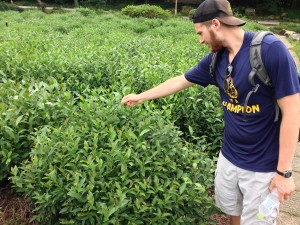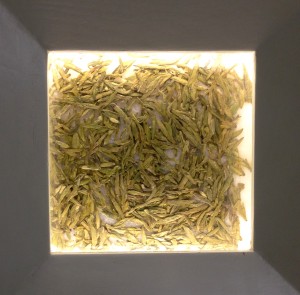All about that Tea
If you know me at all, you know that I have a passion for tea. It is after all one of the most consumed drinks in the world, not to mention incredibly delicious. That’s why it was an awesome pleasure to get to visit China’s National Tea Museum today.
I was able to learn a lot about the history of tea in China, where the amazing drink was first founded. It’s status changed throughout time; during certain periods of Chinese history it was only reserved for emperors and high officials, other times treated as medicine, until being embraced all around China and eventually the world. It developed from the discovery of a few arbors tea plants, into the massive Chinese tea trade, which at its peak in the 1880’s traded more than 250 million pounds a year. Now China is still one of the world’s top tea traders, producing numerous types of black, white, oolong, fermented, and especially green tea.

A traditionally minimalistic Literati tea room, where Chinese aristocrats would enjoy tea, poetry, and calligraphy.
The most famous of all of the Chinese teas, and arguably one of the most famous teas in the world, is also a local specialty of Hangzhou where the museum and our hostel are located. Longjing or Dragonwell tea (龙井茶) is popular because of it’s wonderfully refreshing taste, generally high quality of production, and the legend that backs it up. Emperor Kangxi’s grandson Qianlong once visited the West Lake while on holiday and was served a cup of the localLongJing tea while visiting the HuGong Temple, where 18LongJing tea bushes were maintained.
He found the tea so delicious that he gave each of the bushes imperial status. To this day, the product of those 18 bushes is still sold at auction, costing more than gold by the gram. After trying a cup of regular non-imperial LongJing tea today, I can say that if cured in the right hands those delicious tea buds might just be worth it. Although I will never taste that specific tea, there are tons of traditional techniques used in tea ceremonies and new types of teas that I will have to explore when I get back.
– Alex Yeagle



